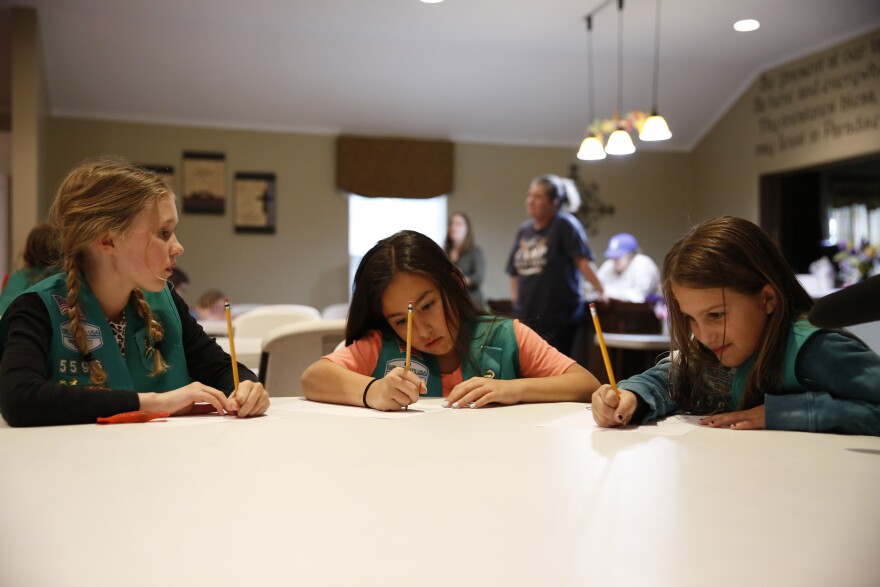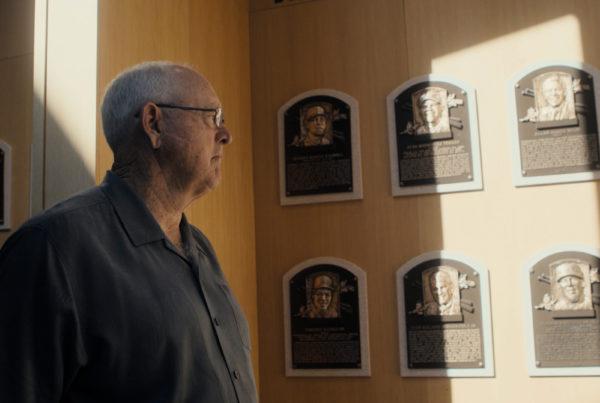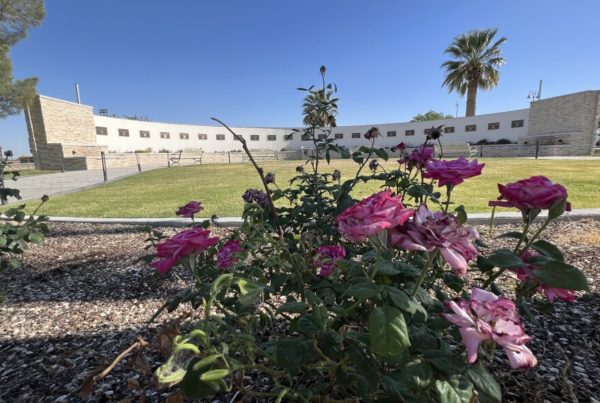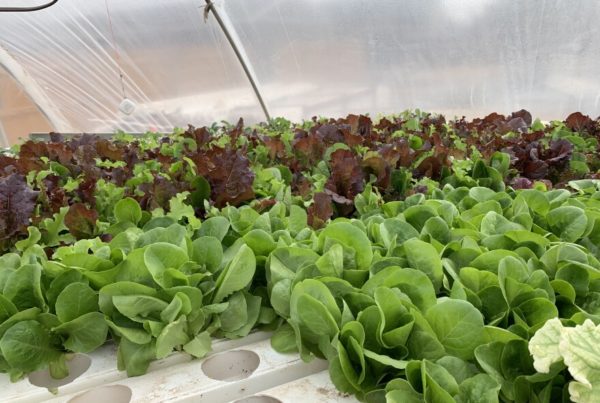From KERA News:
Troop 5596 gathered around tables at the Methodist church in Justin, a community about 25 miles north of Fort Worth, one afternoon in late April. Groups of two and three girls were huddled over worksheets, talking about mindfulness and stress—and there was plenty to say.
Sydney Judge, 9, wrote “sisters” and “state testing” as her top stressors. Audrianna Guerrero, 10, asked her how she feels when she’s stressed.
“Like I’m gonna blow up,” Sydney said. “I feel frustrated. Sometimes I feel like no one believes in me.”
Her troop leaders, Rebecca Bartolomeo and Michelle Smith, asked her what she does when she feels that way.
“I go up to my room and play with my giant stress ball,” said Sydney, “or I go down to the garage and punch my punching bag.”
As the night continued, the Girl Scouts assembled mindfulness kits: plastic pencil cases filled with candy, colorful stickers and small books with activities to do when they feel anxious.
These activities are part of the Okay to Say mental health patch program. It started in 2019 as a partnership between the Girl Scouts of Northeast Texas and community organizations like the Meadows Mental Health Policy Institute and UT Southwestern Medical Center.
A note, this story discusses suicide.
Jennifer Bartkowski, the CEO of Girl Scouts of Northeast Texas, said the organization saw the need for mental health programming for children during the COVID-19 pandemic. According to a recent survey of high school students from the centers for Disease Control and Prevention (CDC), 37 percent of students experienced poor mental health during the pandemic, and felt disconnected, which increased feelings of hopelessness and sadness.
“We found out very quickly that girls were facing that uncertainty with a lot of challenge,” Bartkowski said. “They were feeling isolated. They were feeling anxiety [and] stress at record levels. They were feeling like they just didn’t know what to do or where to go.”
The program’s goals are to make space for conversations about emotions and to give girls the skills to ask for help when they need it to prevent serious outcomes down the line. For example, the CDC reported that during the pandemic, U.S. girls aged 12-17 years old were admitted to the emergency department for suicide attempts 50 percent more frequently than in 2019.
“If nothing else, I want girls to be able to identify that they don’t feel right,” Bartkowski said. “Mental health challenges can lead to health challenges, can then lead to suicidal ideation, and ultimately death. If we can stop that scenario before it gets along that path, that’s the goal of Girl Scouts.”
Community prevention efforts aim to intervene before a crisis
Bartkowski acknowledges that the program isn’t a replacement for therapy or treatment facilities, but it does act as one part of a continuum of care for young people who may struggle to access the services they need.
“I think there’s a gap in all services in mental health across the spectrum, but Girl Scouts can’t fill all of that,” she said. “Where we fit nicely is that sort of prevention space where we can give girls the skills they need on the front end, and then secondarily, give them [and volunteers] the skills they need to identify when there is a shift in behavior.”
Deborah Cohen is an assistant psychiatry professor at the University of Texas at Austinand co-directs the Center for Youth Mental Health, which has a research-based approach to resources for young people who are at risk for developing serious mental illness. Symptoms can appear in children as early as 11 years old for anxiety disorders, but many experience them from age 15 to 26, she said, often when they’re transitioning from pediatric to adult care.
“During that age, people tend not to be attached to health care providers,” Cohen said. “What we find is a lot of people end up having untreated illness for a period of time, just basically as a result.”
Texas is one of about ten states across the country with youth that have higher rates of mental health issues and less access to care. Cohen also said that most mental health services, including those in Texas, are either part of state-funded public health resources like the North Texas Behavioral Health Authority, or are provided through private therapy and psychiatry practices.
“A number of those don’t take insurance, they’re [paid for in] cash, they’re expensive,” she said. “People just find that they can’t get services, that there’s no one there who’s actually providing them what they’re looking for. They can’t even get through the door.”
A study by the Georgetown University Health Policy Institute in 2019 found the national rate of uninsured children was 6 percent. Texas’ rate is more than double that, at 13 percent, which means close to 1 million kids across the state don’t have health insurance.
Cohen said there are gaps in mental health care not just because of affordability and insurance coverage, but also because so many programs are focused on serious, chronic issues in adults, not kids.
The Girl Scouts of Northeast Texas’s Okay to Say program are a part of early intervention strategies. These community-centered programs are designed to improve mental health literacy and build skills, resilience and networks of support that could help prevent a crisis in the future.
“It’s not just important for us as adults to learn those things,” Cohens said. “It’s important for us to have those conversations to learn how to look out for one another.”
Making space for mental health conversations and building resilience
Back in Justin, Sydney Judge and her troop mates packed up their new mindfulness kits and got ready to head home. Sydney put a “seafoam-blue-green” cannister filled with glitter and water into her backpack as part of the kit. It’s a sensory jar that can be used as a stress relief tool.
“I like making kits like this,” Sydney said. “When [state testing] is stressing me out, I can do a little shake, do a little squeeze, because our teachers will let us bring this to school. They’re too nice not to let us.”
Assistant troop leader Michelle Smith rearranged chairs as the girls slowly filtered out of the church. The next meeting will wrap up the troop’s patch program, with an activity about asking for help. They’ll also make aromatherapy play dough to take home as a stress relief tool.
Smith said seeing the girls at the beginning of the pandemic versus now is a marvel.
“They were sad, they weren’t talking, they surely weren’t interacting with one another because everyone was scared,” she said. “And now, they’re all giggling, we go on campouts and they’re holding hands and singing songs together. This is what childhood is supposed to be.”
She said the program has helped open conversations about mental health, even between her and her own kids.
“They’ve got the resilience that they’ve learned by having to deal with the pandemic, they now can identify their feelings, they can talk about it, and they know where to go to get help,” Smith said. “And they’re able to share that with other people. Is there anything more powerful than that?”
The Okay to Say program was launched statewide in 2020. Close to 6,000 girls in Texas have earned their patches so far.
For resources and support, call the National Suicide Prevention Lifeline at 1-800-273-TALK.
KERA is part of the Mental Health Parity Collaborative, a group of newsrooms that are covering challenges and solutions to accessing mental health care in the U.S. The partners on this project include The Carter Center, The Center for Public Integrity, and newsrooms in Arizona, California, Georgia, Illinois, Pennsylvania, and Texas.














